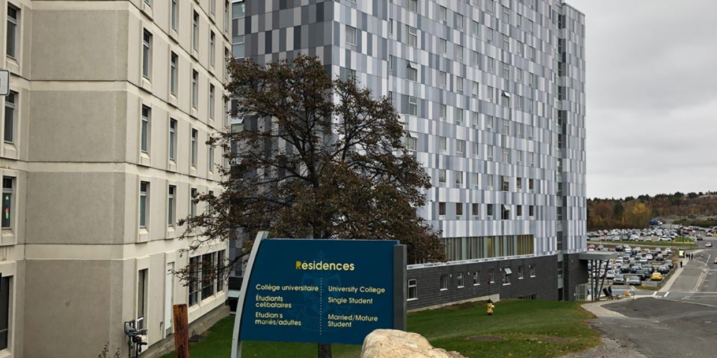by Lexey Burns, Editor-in-Chief
On January 15th and 20th, two positive COVID-19 cases were confirmed in Laurentian’s residences. Despite what information Laurentian University has released to students, some key details have been left out.
Firstly, students have been wondering which residences the people infected reside in. Other universities– like Guelph and Western– are dealing with outbreaks, and both have revealed which residences the cases lived in.
So why not Laurentian?
With East, West, and Mature/Married Student Residence (MSR) as well as the federated universities’ residences operating, there are more than 500 students currently living on campus.
Shaun Malley, a communications officer at Laurentian, confirmed that the origin of both cases were not linked to residence.
Ben Demianiuk, Director of Business Development, added “We also have the legal responsibility to protect the privacy of individuals within our community.”
Demianiuk said that the school works with students to determine the best place to isolate.
“I can also report that as of this morning, the two cases in residence have been resolved,” Demianiuk said.
But Brianna Peever, a third year nursing student said, “we feel like we have a right to know.”
Since reporting two confirmed cases in residence, I’ve had several students ask me if I knew what residence the positive cases lived in. The worst feeling as a reporter is having to say “I don’t know.”
I believe it’s important for students to know where the students infected lived because other students with confirmed contact can choose to isolate where they originally reside, or isolate in the designated isolation block in Single Student Residence (SSR).
Also, there are so many communal spaces that aren’t properly cleaned frequently enough (that I know of) like laundry rooms, study spaces, student street bathrooms, and elevators. Anyone who’s asymptomatic and hasn’t been tested could use these and be unknowingly spreading the virus.
I understand that Laurentian wants to protect the students’ privacy because, but, other universities have announced what residence their COVID-19 cases have lived in with no negative repercussions.
Western University in London, who in November “declared a COVID-19 outbreak in Perth Hall residence” the Middlesex-London Health Unit (MLHU) did not hesitate to tell students, as well as the public, which residence the cases had tested positive in.
The University of Guelph (UofG), has confirmed 44 new cases as of January 25th.
Charlotte Yates, President of UofG said “as you may have heard recently, there is a serious situation affecting our University of Guelph campus,” in a message to the community posted as an IGTV video on Instagram.
“We are dealing with a COVID-19 outbreak resulting from unsanctioned social gatherings in our university residences,” Yates said.
She confirmed that over two dozen students have tested positive for COVID-19 and they are awaiting further test results.
The UofG Instagram says “Gatherings on Jan. 15 and 16 at the East Village townhouses are connected to an outbreak in residences.”
“This outbreak is a reminder of the importance of following Public Health guidelines,” Yates said.
I believe Laurentian’s announcements about both cases were timely but lacked details that my friends, fellow students in residence, and I believe are important to know. This includes not only telling us where the cases were originally located, but also how many other students had to isolate?
Laurentian seems adamant on keeping certain information a secret, but also says that both cases are resolved. The second case was announced six days ago. Less than a week doesn’t seem like a long enough time to recover from a virus that has killed almost 20,000 Canadians.
I’ve seen plenty of people walking maskless through residence and seemingly don’t care when an RA or porter tells them to put one on. Providing exact details about the cases could encourage students who hadn’t been taking residence’s rules seriously to reconsider.
The university is trying to contain panic in residence, but the slow worrying that builds up over time is not good for students’ mental health. We have enough to worry about with our course work and not getting sick ourselves.
500 of my fellow students and I have entrusted the university to keep us safe. So why keep us in the dark?
